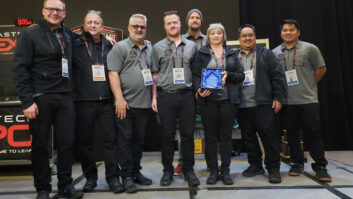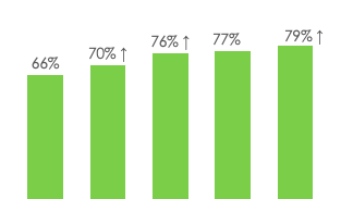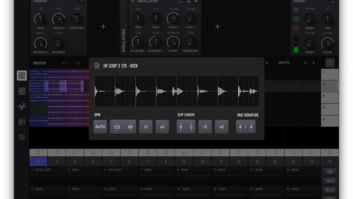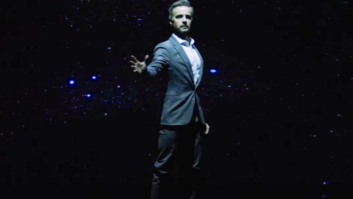Retail launches this week of the two video game platforms — Microsoft’s Xbox and Nintendo’s GameCube — so far have proven the old adage that the more things change, the more they stay the same.
That’s because just as with the launch of PlayStation2 almost exactly a year ago, the toy and consumer electronics retail industries are fretting over shortfalls in supply this holiday shopping season. Last year’s headache was caused by meager deliveries of Sony’s PlayStation2 consoles just after launch. This year, retailers and manufacturers are challenged with providing enough GameCubes and Xboxes — or appropriate alternatives — to keep Christmas shoppers happy.
At press time, Microsoft officials said they remained on course to meet their recently revised delivery date of Nov. 15, while GameCube people were holding fast to their revised date of Nov. 18.
In both cases, holiday quantities were expected to be well short of demand.
Microsoft, while not disclosing exact launch quantities at press time, said it was on course to deliver between 1 million-1.5 million units to retailers for the holiday selling season.
Similarly, Nintendo spokesperson Beth Llewlyn said retailers could expect to see GameCube launch with 700,000 units with deliveries coming continuously thereafter. Nintendo plans to deliver a total of 1.3 million units through the holidays, the company said, and up to 1.5 million by the end of its fiscal year in March.
Meanwhile, industry observers said Sony is well positioned to cash in on all the added demand the launch of the new players will bring to the market this holiday season as Microsoft and Nintendo begin extensive advertising efforts and the media publicizes player shortages for Christmas.
Sony, having a year to ramp up supplies of Playstation 1 and 2 consoles, is loading up dealers with players and software to divert attention away from the GameCube and Xbox hype.
Nintendo also stands to cover its own short GameCube supplies by selling Gameboy Color and new GameBoy Advance handheld players. The latter is well positioned in that it features connectivity to the GameCube for playing a number of specially developed hybrid GameCube/Game Boy Advance titles, the company said.
Microsoft is targeting the Playstation 2 audience with talk of Xbox’s higher processing speed, built-in hard drive and out-of-the-box Internet connectivity for the $299.95 suggested retail price. The company also expects to deliver a stable of titles geared for slightly older hard-core gamers.
Nintendo planned to forego discussion of its $199.95 suggested retail hardware platform and speak to its stable of popular game franchises that will be available exclusively on the GameCube. Nintendo has focused its push on supplying games for a broader segment of game players including younger players attracted to its wildly successful character culture.
The player will launch with two Nintendo developed-games — “Luigi’s Mansion” and “Wave Race Blue Storm.” An additional five to six third-party titles are expected at launch, Llewelyn said. Average game pricing will run about $49.95 suggested retail.
Nintendo will add two more games developed in-house —”Pickmen” and “Super Smash Brothers Melee” — by the end of the year, and between six and seven additional titles will also ship from third parties.
Microsoft was prepared to launch Xbox with an assortment of both first and third-party titles generally aimed at slightly older game players. These include: “Halo,” “Oddworld: Munch’s Oddysee,” “Amped,” “Dead or Alive 3,” “Project Gotham Racing” and “NFL Fever 2002.”
To promote the launch, Microsoft recently started what it called “a highly provocative broadcast advertising campaign” for the Xbox, using a series of stylized teaser ads centered on the green Xbox jewel icon. These are to run until the Nov. 15 launch day, when a new series of ads are set to begin, featuring game titles that will be available at launch from both first- and third-party developers.
Microsoft said the entire campaign would run through the holiday season.
“Xbox was built by gamers, for gamers, so we understand that all of our advertising, promotions and events need to speak to gamers in a language they respect, and most important, in a voice that conveys the intense and exciting gameplay experience that only can be found on Xbox,” said John O’Rourke, Microsoft Xbox sales and marketing director.
The ads will appear on a variety of networks and TV series, including Fox, UPN, Comedy Central, WWF, ESPN and MTV. The broadcast campaign will be supported by print ads in lifestyle media such as Maxim, Rolling Stone and FHM, and gaming magazines.
Microsoft called the television campaign “the cornerstone of a larger marketing effort to connect with gamers across the country.”
The overall effort is to include national promotions with Taco Bell, SoBe and Vans, and a mobile game demonstration theater called “Xbox Odyssey,” which recently began a 40-city, 12-month tour of the country.
Nintendo began television spots for GameCube and two games at the end of September, and will have a corresponding print ad campaign in targeted national magazines.
As for the year ahead, Nintendo’s Llewlyn said the company expects spikes in console business around the release of “some of our big games,” including the next Mario game called “Mario Sunshine” and the next iteration of “The Legend of Zelda,” tentatively slated for pre holiday 2002 release.
Outside observers say that in the short-term both platforms will enjoy sellout success until supply lines stabilize.
Peter Moore, Sega America CEO, whose company has launched a number of player platforms before opting to focus its attention exclusively on game development for other’s platforms, said the true test of success won’t be known for a year.
“There will be an awful lot of publicity starting in mid November, because there has never been a situation where two consoles have launched in the same the week before,” Moore said. “We have no doubt that both platforms will sell out to the gills in the next few months. But the real test will come next fall.”
Moore said Sega is busily developing titles for all three platforms (in addition to its own discontinued Dreamcast platform), “but we realize this is going to be a marathon instead of a sprint.”
As a third-party developer, Sega is looking to push its strength as a creator of realistic sports titles, which generate about 45 percent of the company’s revenue, Moore said.













